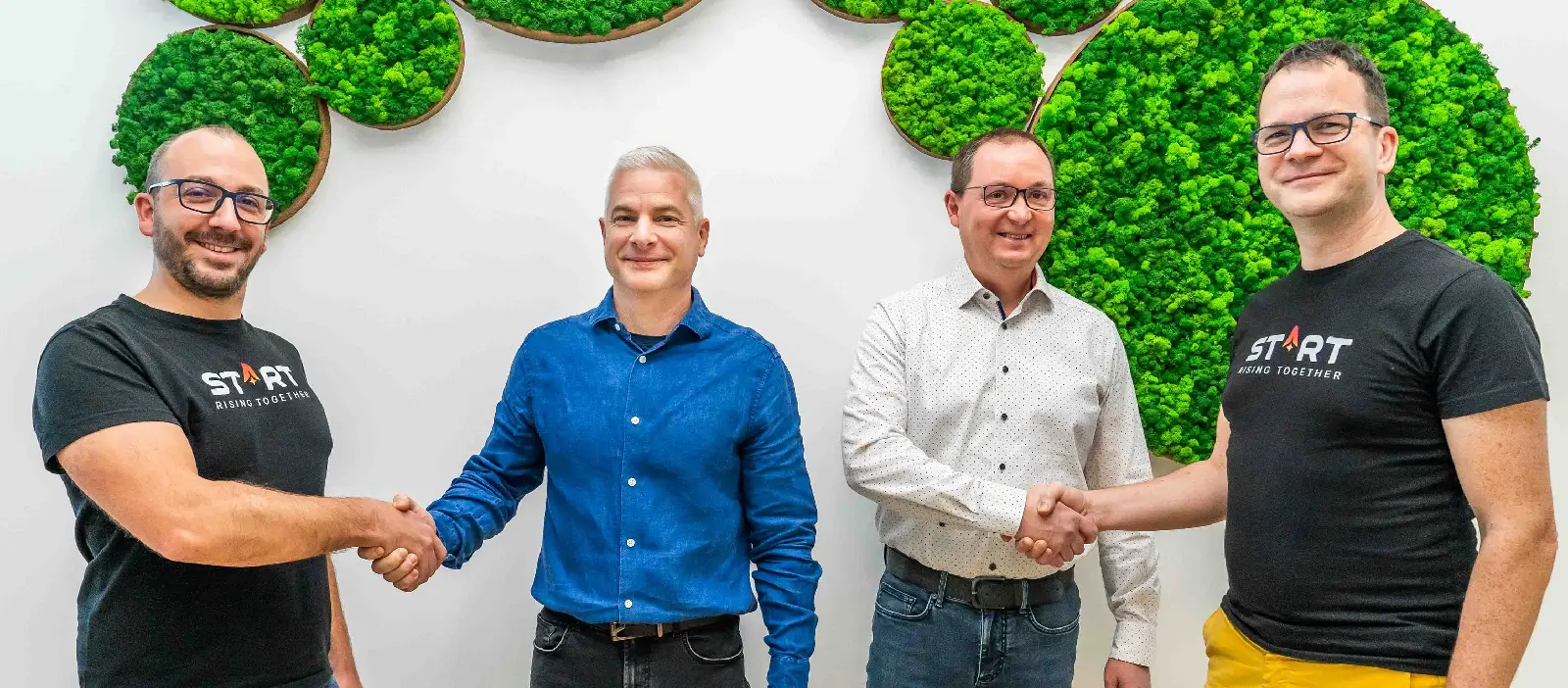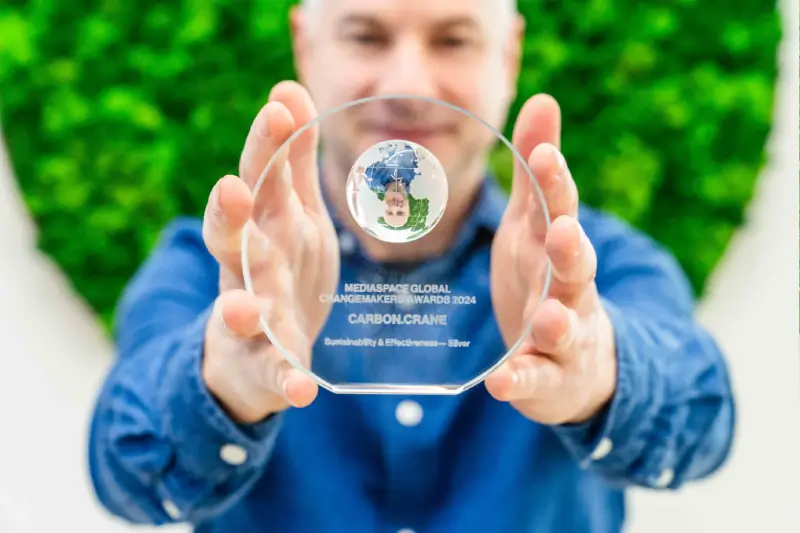Balogh Petya Petya Balogh with his STRT Holding as well as two other investors have seen potential in Carbon.Crane, a company specializing in reducing the carbon footprint of digital marketing activities, including websites and email campaigns. The 100% Hungarian-owned startup, founded in Budapest, has developed unique solutions to address the large and growing global carbon footprint caused by the 350 billion emails sent daily worldwide[1] and the 200 million active websites[2], with their server parks in the background. Its innovative services have received international industry recognition, most recently at the MediaSpace Global Changemakers’ Awards 2024.
Although we tend to think of digitalization, including our computers and smartphones, as a way of going green by eliminating the use of paper, the huge server parks that run in the background as a result of networked use mean that these devices are contributing more and more to global carbon emissions. While internet use accounted for roughly 4 percent of the world’s total carbon emissions in 2020, it is expected to double by 2025 and reach 14 percent by 2040. To put this in perspective, even 4 percent is equivalent to aviation emissions[3]. It is also an area that is not widely addressed, even on a global scale, which is why the service developed by the Hungarian experts at Carbon.Crane is so unique. The company is able to measure the carbon footprint of an entire website, even one with hundreds of thousands of pages, and within that, the emissions of each individual page, as well as which elements of the page, which files generate large amounts of carbon emissions. Based on this information, they can also recommend ways to optimize the site, and certify the results of the website’s carbon-conscious efforts. If there is a demand for it, they will continue to monitor the site, and intervene immediately if anomalies are detected. Optimizing the elements (images, video, text, code) on a site can lead to significant annual energy savings and emission reduction measurable in tons for a high-traffic site, with cost savings of up to millions of forints. Companies and institutions such as E.ON, MBH Bank, Spar and the Budapest Festival Orchestra have already used Carbon.Crane’s services, while Mastercard has also implemented carbon reduction solutions in the US and Hungary. For an email campaign, global statistics show a typical open rate of 20-22%, meaning that 200-220 emails out of a thousand are opened. The remaining 780-800 emails end up in the inboxes unnecessarily and they are even environmentally damaging due to their carbon footprint. Carbon.Crane uses artificial intelligence to predict with almost 90% accuracy which 800 recipients out of the 1,000 will not open the mail. This results in a shorter list of recipients, a higher open rate, a more efficient campaign, and lower carbon emissions.
The Carbon.Crane team was looking for investors to further develop and to expand their business internationally. The angel investors, STRT Holding Nyrt. led by Petya Balogh, Dénes Kovácsházy of Multicom Holding Zrt., and Ákos Dervalics, backed the company and provided the necessary funds to enter the domestic and international markets as a private limited company.
Carbon.Crane’s solutions are also internationally recognized, as evidenced by the fact that the company’s measurement and optimization results in the field of digital carbon reduction were awarded the Silver in the “Sustainability & Effectiveness” category of the Mediaspace Global Changemakers’ Awards 2024. The awards was created by Mediaspace Global to reward valuable, forward-thinking projects from around the world that are taking place in the rapidly changing technological, market and regulatory environment of the media and advertising industry.
About Carbon.Crane:Founded in August 2024, Carbon.Crane is a startup that offers its clients unique solutions that help them become more environmentally conscious by measuring and optimizing the carbon footprint of digital assets, primarily websites and email campaigns. Building on their real-world experience, their CarbonClass workshop is offered free of charge to students of higher education institutions – the professionals of tomorrow. Their goal is to raise awareness of the importance of reducing the digital carbon footprint, offering a tangible solution to tackle the problem.
[1] https://www.statista.com/statistics/456500/daily-number-of-e-mails-worldwide/ [2] https://www.internetlivestats.com/total-number-of-websites/ [3]https://www.nationalobserver.com/node/39876#:~:text=Projections%20indicate%20this%20figure%20may,a%20big%20role%20to%20play
|



